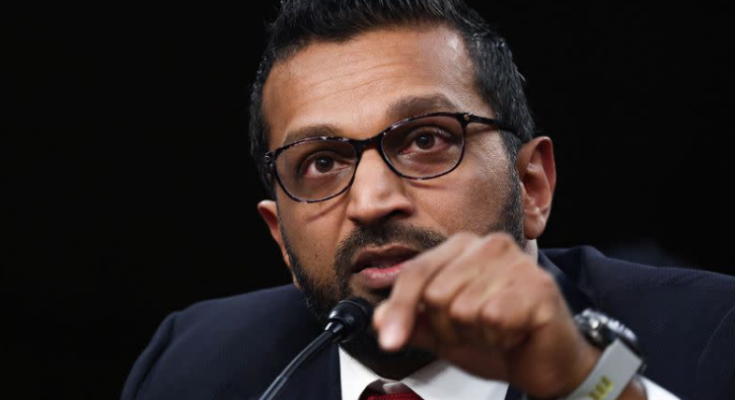WASHINGTON (Reuters) – The U.S. Senate took a significant step on Tuesday toward confirming Kash Patel as the next director of the Federal Bureau of Investigation (FBI), moving forward one of the most controversial nominations of President Donald Trump’s tenure. In a closely watched vote, the Senate voted 48-45 along party lines on a procedural measure, effectively setting the stage for a final confirmation vote later this week.
Patel, a longtime Trump ally who previously held intelligence and defense roles during the former president’s first term, has been a fierce critic of the FBI and its handling of investigations involving Trump. If confirmed, he would take charge of the nation’s most prominent law enforcement agency, a position that holds immense power in shaping federal criminal investigations, counterterrorism efforts, and national security operations.
Patel has vowed to implement sweeping changes at the FBI, aligning its priorities more closely with Trump’s policy agenda. He has pledged to increase the agency’s focus on combating illegal immigration and violent crime—two key issues that Trump and his supporters have repeatedly emphasized. His proposed approach represents a significant departure from the FBI’s traditional role in handling counterintelligence and white-collar crime, leading critics to warn of the politicization of the agency under his leadership.

One of the most controversial aspects of Patel’s nomination is his history of outspoken opposition to the FBI’s past investigations into Trump. He has repeatedly challenged the legitimacy of probes into Russian interference in the 2016 presidential election, the discovery of classified documents at Trump’s Mar-a-Lago residence, and Trump’s efforts to overturn the results of the 2020 election. His criticisms of these investigations, which he has characterized as politically motivated attacks against Trump, have made him a polarizing figure in Washington.
Democrats have strongly opposed Patel’s nomination, arguing that his views and past statements disqualify him from leading the FBI. They have pointed to his promotion of debunked claims of widespread voter fraud in the 2020 election and his assertions that FBI agents played a role in inciting the January 6, 2021, attack on the U.S. Capitol. Democratic lawmakers warn that appointing Patel to lead the FBI would undermine public trust in the agency and pose a threat to its independence from political influence.
Despite these concerns, Patel has garnered strong backing from Republicans, who view him as a much-needed reformer. Many GOP senators have praised his commitment to restructuring the FBI and addressing what they see as deep-seated biases within the agency. His supporters argue that his leadership would bring accountability and restore faith in an institution they believe has been unfairly weaponized against Trump and his allies.
The debate over Patel’s nomination has sharply divided lawmakers along party lines. Last week, the Senate Judiciary Committee advanced his nomination with a narrow 12-10 vote, sending it to the full Senate for consideration. With Tuesday’s procedural vote clearing the way for final confirmation, Patel’s fate now rests in the hands of the full Senate, where another highly partisan showdown is expected in the coming days.



